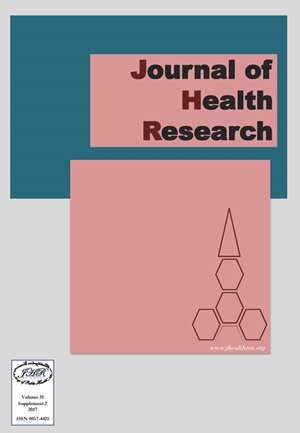Assessment of HIV/AIDS Preventive Practice among Myanmar Female Sex Workers in Mae Sot District, Tak Province, Thailand
Keywords:
Preventive practice, Condom use, HIV/AIDS, HIV/AIDS Prevention, Cross-border migrant workers, Myanmar Female Sex Workers, ThailandAbstract
Background: Myanmar female sex workers (MFSW) in Mae Sot district, Tak province, Thailand are seriously at risk of HIV/AIDS infection and transmission due to their profession and their migration status. They hardly access and/or being accessed to HIV/AIDS prevention and treatment services by health service providers both non-government organizations (NGOs) and government agencies since they are “hard-to-reach population”.
Methods: This study was conducted for assessing HIV/AIDS preventive practice among MFSW in Mae Sot district. A structured interview questionnaire was used to collect the data from 120 Myanmar female sex workers, aged 18 years old and above who worked in different prostitution businesses in Mae Sot during 21 October-4 November 2016.
Results: More than half (57%) of MFSW were unregistered migrant workers. More than 60% of them had regular partners, including husbands/spouses, boyfriends or lovers, and15% of them also had both husband and boyfriend at the same time. Crucially, only 37% of them revealed that their regular partners knew about their prostitution works. A significant barrier to accessing HIV blood testing was the fear of arrest by the police officers which was about 40%. For HIV/AIDS preventive practice, the majority or 60% of MFSW had moderate level while 22% and 18% of them had good preventive practice and poor preventive practice, respectively.
Conclusion: MFSW respondents had a moderate level of practice towards HIV/AIDS prevention and numbers of MFSW also have many regular partners. Such findings address the hidden critical alarms for more opportunity of HIV infection and transmission among MFSW, regular partners, their clients and others. There is an urgent need for critical and comprehensive interventions on HIV/AIDS prevention and treatment, particular communication for behavior change programming.







